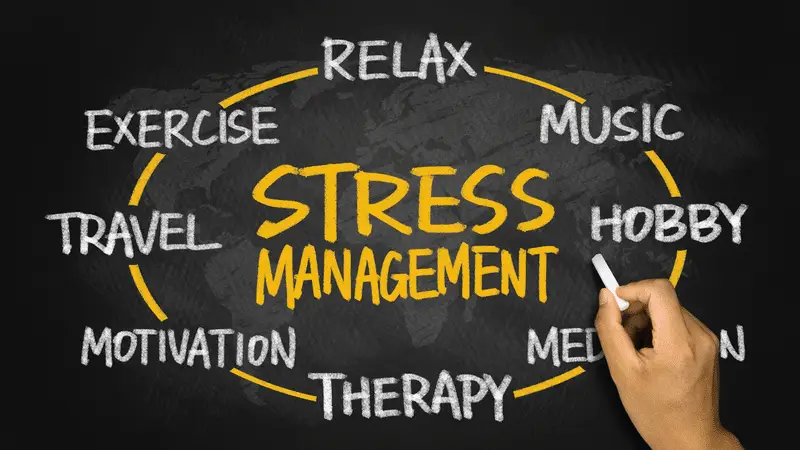Stress, anxiety, and depression have unfortunately become all too common in the modern American workplace. Recent research and statistics show that mental health issues affect an increasing number of Americans, so let’s address one we all know….job stress.
The scoop on job stress
Job stress makes up a significant portion of the mental health crisis. In 2019, 83% of American workers reported experiencing job-related stress. This statistic indicates that stressful work environments have become the norm in America rather than the exception.

Unfortunately, I think we all know the answer to this question.
Too many employers are not doing enough to alleviate stress. And while there is no doubt these companies are paying the price, so are all of the people working under these less than ideal circumstances.
So what gives? And how are we supposed to fix the problem?
Let’s work through it together.
The vicious cycle of job stress
The effects of job stress are tangible and immediate with declines in productivity, work drive, and focus.
As a result, it’s estimated that US businesses lose $300 billion annually from workplace stress. Unreal right?
And the kicker is the extra work falling down the ladder to the ones already spread too thin.
But enough about your boss, let’s talk about you.
Causes of work related stress
Before dissecting the symptoms and remedies of work-related stress we first should understand its causes.
Not surprisingly, statistics reveal that the leading causes of workplace stress include:
- heavy workloads
- tight deadlines
- long hours
- job insecurity
- demanding bosses
- lack of autonomy
- work that is not engaging or challenging
- and discrimination.
When left untreated, job stress can lead to long-term issues that pose a substantial risk to your mental health.
So without further adieu, here are the top 3 indicators of job stress that you should look out for:
- Anxiety and Depression. Left unchecked, anxiety and depression have serious implications on one’s personal and professional life. In 2000, depression in employees led to $51 billion in costs due to employees missing work and $26 billion for treatment costs. Given the increased impact of job stress and depression across workers now, this figure is surely greater today.
- Headaches. Stress is a common trigger of chronic tension headaches and migraines. 80% of Americans get these headaches from time to time and 3% experience them daily. These ailments often disrupt workflow, hinder focus, and are sometimes so severe that they prevent you from thinking straight altogether.
- Trouble Sleeping. Many mental health issues, such as stress, can rattle your sleep schedule. Studies have found that elevated stress levels, especially from the workplace, are directly linked to an increase in insomnia. In turn, lack of sleep has harmful reciprocal effects on work performance, personal relationships, and physical health.
How to deal with the job stress
Managing workplace stress requires a multifaceted and layered approach; there is no one surefire way to deal with it. However, there are certain steps you can take to overcome work-related stress.

- Identify your Stressors. Be cognizant of your surroundings and keep a physical journal of all the daily activities, interactions, and other instances that cause the most stress. Make note of your thoughts, feelings, and reactions to each situation. Keeping an account of primary stressors can help you better understand patterns of workplace stress and how to manage them effectively.
- Develop Healthy Responses. Instead of battling stress with unhealthy routines, such as excessive screen time, alcohol, and drugs, turn to more health conscious choices. These decisions can vary from physical exercise, meditation, spending time with family, and reading books depending on your preferences. It’s critical to develop healthy habits because they are simply the most effective response to stress in the long run.
- Establish Boundaries. For jobs that feel excessively demanding, it’s crucial to create clear work-life boundaries. For instance, not taking calls outside of the working hours is one way of managing the divide between professional and personal life. Having a healthy work-life balance should not be a juggling routine and establishing boundaries will alleviate any potential job stress.
- Get Support. Accepting and seeking help from friends, family, and mental health professionals are paramount in managing stress. Being able to vent in a safe place is crucial for coping.
For those of us that feel an overwhelming sense of stress, the health providers at Makin Wellness offer counseling online for individual and in group environments.
Job stress is an inevitable part of our lives, but like any other challenge, it can be conquered… and that’s a bug we can all be ok with squashing.

Makin Wellness Research








